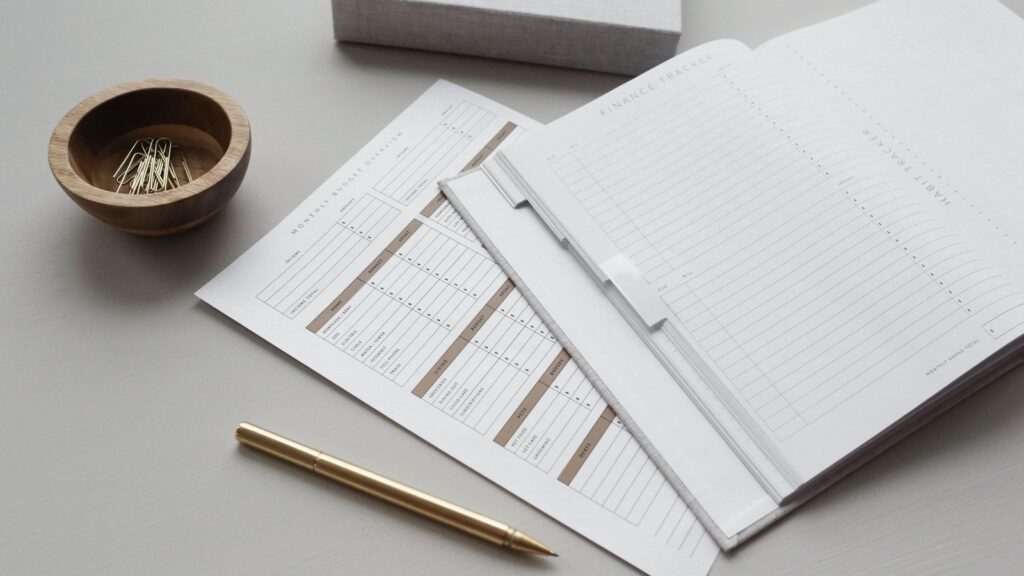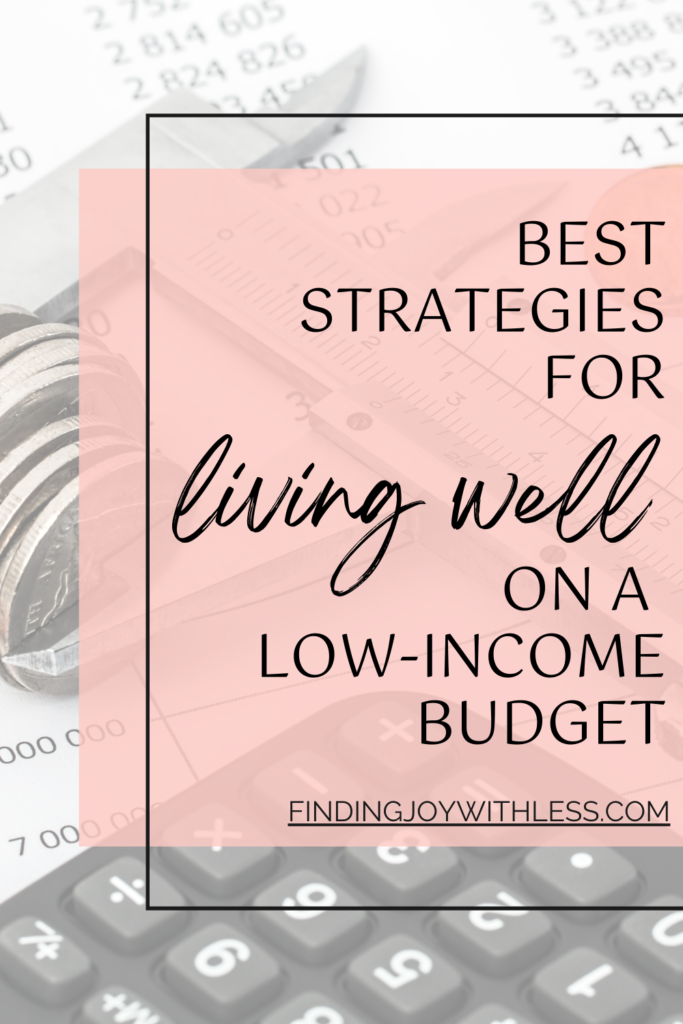15 Great Strategies to Survive on a Low-Income Budget
This article will explore living strategies that are affordable, accessible, and offer a sense of dignity and self-worth.
If you’re looking for ways to save money on the things that matter most without sacrificing your quality of life, this article is a must-read. We’ve provided 15 living strategies that are cost-effective and can help you live well with minimal financial stress, so you don’t have to make sacrifices in other areas of your life. Whether you choose one or all of these strategies, you’re sure to find something that works for you.
Disclaimer: I am not a licensed financial analyst /advisor. All information found here is based on my personal research, readings, experiences, and personal point of view. I do not represent any financial company, and the information I am sharing is only for informational purposes and not to be taken as professional advice. This post aims to share what I am learning with my readers as I embark on this journey to debt-free, frugal living and minimalism.




15 Great Strategies To Survive On A Low-Income Budget
Write down your financial goals.
When it comes to your finances, it’s important to be clear about your goals. How much money do you need to save each month from reaching your target? What changes do you need to make to improve your financial situation?
Whether you want to pay off debt or be able to save at least $1000 to start with, set a goal. It can be helpful to write down your goals and keep them somewhere visible, such as on your refrigerator or bathroom mirror. This will help you to stay focused and motivated.
“The plans of the diligent lead surely to abundance, but everyone who is hasty comes only to poverty.” Proverbs 21:5
Be conscious of your credit score.
This depends on where you live. In the US and Canada, your credit score is a measure of your financial health and plays a role in determining your interest rate on loans, credit cards, and other lines of credit. If you plan on getting a mortgage, it’s important to monitor your credit score and make sure that it stays as high as possible.
One way to improve your credit score is to make sure that you consistently pay your bills on time. You should also avoid opening too many credit cards at once and try to keep your credit utilization ratio (the amount of credit you’re using compared to the total amount available to you) below 30%.
Evaluate your current spending habits


There are several different ways to track your spending, including pen and paper, budgeting software, or online tools. Choose the method that works best for you and stick with it. For example, I have used Mint.com and a free Expense Manager to track our family spending.
It can be hard to stick to a budget, but it’s essential to do so if you want to stay financially stable. A budget can help you figure out how much money you have coming in and going out each month, and it can help you stay on track so that you don’t end up spending more than you can afford.
There are a few key things you can do to make it easier to stick to your budget:
– First, create a budget that is realistic and that fits into your lifestyle. Don’t try to follow a too restrictive budget or one that doesn’t allow for any fun expenses.
– Second, make sure that you put all of your expenses down on paper or Excel, including both fixed and variable costs. This will help you better know where your money is going each month.
– Third, make sure that you have enough money saved up for emergencies. You should have at least 3-6 months’ worth of living expenses saved up if something unexpected comes up. We are still working on this as a family of four.


Find creative ways to earn money on the side.
There are many ways to make extra money from home. Popular side hustles include online surveys, transcription, pet sitting, and selling products or services online.
One of the best things about having a side hustle is that it allows you to make money while keeping your day job. This gives you the freedom to experiment with different businesses and find the one that’s the best fit for you.
If you’re looking for something more hands-on, then consider starting your own small business. Profit out of something you are great at. This can be a great way to control your income and future. Just make sure that you do your research and plan out your business carefully.
No matter what side hustle you choose, make sure that it’s something you’re passionate about. That way, you’ll be more likely to stick with it in the long run.
Set aside a budget for fun and entertainment
To stay happy in your low-to-average income, you need to find a way to enjoy life. This can be done by setting aside money for small luxuries like a very much-needed spa time or an occasional movie night with your husband.
The key is not to set yourself up for failure; this means not spending more than 10% of your monthly income on these items. That way, you’ll still be able to live well while enjoying some simple pleasures.


Live within your means.
Living within your means is the foundation for achieving financial stability. It can help you avoid debt, save money, and increase your chances of affording necessities like housing, food, healthcare coverage and child care. The easy access to credit cards sometimes makes it easier for us to live the life we cannot afford. To avoid this, ask yourself this question before you swipe that card, “would I be able to pay this in cash without using my credit card?”
Find affordable housing
Renting or owning an affordable home and meeting your needs is a key to living well on a low income. There are many options available, so do your research and find the best fit for you.
If you need to get a mortgage, aim for a home that you can be comfortable paying monthly and is easier to manage. For example, you do not need a five-bedroom home when you are just a family of four.


Reduce transportation expenses
Public transportation can save you a lot of money in the long run. Not only is it cheaper than owning a car, but it’s also better for the environment. Public transportation can be a great way to save gas and car maintenance costs. Additionally, biking and walking are great ways to exercise and save money on transportation costs.
This advice varies depending on your location. For instance, it is necessary to use private transport where we live, but if you live in a city where public commuting is convenient, you’re blessed.
Cut out unnecessary expenses.
It can be challenging to live on a low income, but there are ways to reduce your expenses and make them more manageable.
We spend our money on many things that we don’t really need. Last spring, I joined a Dollarama group on Facebook, which got me addicted to purchasing household items that ended up being donated anyway. As much as these groups entertain us, if it’s going to inspire you to spend more, now is the time to leave it. Figure out your most significant expenses and see if there are ways to reduce them.


Reduce your cellphone bills.
Check with your phone provider for additional discounts or if you can reduce your bills. You may not need much data if you work from home, or you can stick with your current phone when your contract expires without having to upgrade or get the latest phone offer.
Cancel or get the best deal for cable and internet.
If you really need to watch TV, negotiate with your cable provider or shop around for providers that offer bundled services with internet for less and do not take a landline if you don’t really need it.
Cancel unnecessary subscriptions or share subscriptions whenever possible
You may even cancel your cable and stick to using Netflix or Prime instead. You can even share subscriptions with trusted family members, like your siblings, if you are comfortable doing so, even if they live in a different home.
Avoid impulse purchases.
Okay, I am really talking to myself here. Should you really need to go shop for anything, make sure you stick to what you need to buy and avoid impulse purchases. Haha.
Make your home more energy-efficient
Making your home more energy-efficient can help you save money on your monthly energy bills. Some simple tips include installing insulation, sealing air leaks, and using energy-efficient appliances. Search for good deals on a good air conditioning system or heat pumps to decrease the high cost of baseboard heaters. In the summer, it is a great idea to hang clothes to dry instead of using the dryer.
Seek out freebies and discounts


One great way to reduce expenses is to seek out freebies and discounts. There are many places where you can find free or discounted products and services. Here are a few examples:
-Local libraries offer books, movies, and music for free or at a discount. I use the Libby App by Overdrive to read or listen to bestselling books or novels for free.
-Local museums offer free admission on certain days of the week or for certain age groups.
-Senior citizens and students can often get discounts on movie tickets, transportation, and other services
-Many businesses offer discounts to customers who sign up for their loyalty programs
– Look for schools that do hairdressing or haircuts for free. Please make sure to give a donation if you do this, so the students feel better about their work.
Stay healthy by eating fresh and affordable foods.
One of the best ways to stay healthy on a budget is to eat fresh, affordable foods. This can be as simple as shopping at your local farmer’s market or grocery store. You can also prepare meals at home, cheaper and healthier than eating out.
When you need to buy groceries, be sure to shop around and compare prices. There are many different stores out there, so find the one that offers the best deals on the items you need. You can use apps to know where the best deals are provided, like Flipp. And don’t forget to write your shopping list before you head out of the house.
Staying healthy can be expensive, but it’s worth it in the long run. Make sure to have a health insurance plan and to stick to a budget for medical expenses.
Buy used whenever possible.


There are many things that we can buy used instead of new, which can save us a lot of money. For example, you can purchase secondhand clothes, furniture, and cars. You can also shop at thrift stores or garage sales.
Thrift stores are a great way to save money on clothes, furniture, and other household items. The best part is that you can find some really great stuff at thrift stores, and you don’t have to spend a lot of money. You can also save money by shopping online at eBay or Facebook Marketplace sites. Just be sure to research the item before buying it to ensure you’re getting a good deal.
Give back and share your blessings.
Even when you are on a low-income budget, giving tithes and sharing your blessings are vital. Sharing can be done by donating food to a food bank, giving money to a charity, or helping out a neighbour in need. You can join a Buy Nothing Group. It is important to remember that what goes around comes around and that you will also be blessed by blessing others.
“But if anyone has the world's goods and sees his brother in need, yet closes his heart against him, how does God's love abide in him?” 1 John 3:17
Create a support network.
Having a solid support network is essential when living on a tight budget. Friends and family can offer emotional support and helpful tips and advice.
Be patient and stay positive.
It is crucial to remain positive and patient when you have less budget to work around with. With a little hard work and some creativity, you can make it happen.
Get involved in your community.
Many people are not aware of the benefits of getting involved in your community.
By becoming a part of your local community, you can meet new people and make connections to help you save money through referrals.
Ways to get involved include volunteering, attending local events, or participating in grassroots organizations.
Live a simple life and be content with what you have


One of the best ways to stay happy and save money is to live a simple life.
When you focus on having less, you become content with what you have and don’t need to spend money unnecessarily.
Minimalism can be a great way to simplify your life and focus on what’s truly important. You don’t need a lot of material possessions to be happy – in fact, having too many things can actually be counterproductive.
“Keep your life free from love of money, and be content with what you have, for he has said, “I will never leave you nor forsake you.” Hebrews 13:5
If you would like to learn more about minimalism, I have a list of great books to get started in another post.
Takeaway
Each of these strategies can help you live well on a low income, a bit more manageable and stress-free. Implement as many of them as possible to get the most out of your budget.
We want to make sure that as many people can learn to live a more fulfilling life on a budget. If you liked these tips, please share this post on social media and help us spread the word. And if you have your own strategies for living well without breaking the bank, we would love to hear about them in the comments below.
One of the best things about having minimal expenses is having more time and money for what’s really important in life: your family. By finding creative solutions to live well with less, you’ll spend more quality time together without breaking the bank or feeling stressed out. And remember, it’s never too late to start making positive changes in your life!
We want to make sure that as many people can learn to live a more fulfilling life on a budget. If you liked these tips, please share this post on social media and help us spread the word. And if you have your own strategies for living well without breaking the bank, we would love to hear about them in the comments below.




Very informative…will still try to follow this! 😍
What a great Blog! Indeed.👌🏻👏🏻
Kahit magkaiba tayong strategies for budgeting, marami pa rin akong natutunan sa mga tips mo. Thank you sis.☺️
Glad you liked it, please feel free to comment/share your strategies 🙂
Thank you so much! Glad you liked it
All of these tips are very helpful specially to all the moms out there. I just wanna add make sure to prepare the retirement money also while we are still young 😊
Absolutely! Preparing for retirement is most often neglected by younger generations. If we start young, we’ll be more comfortable in our retirement years. Thank you!
This is useful not only for low income but for high-income earners too. You should be responsible in the way you spend your money since no one knows what the future could bring to you financially.
This is such an exhaustive list. Better get started!
Thanks for this.
Thank you Jaclyn, best of luck!
That is so true. Better be prepared no matter our financial standing is.
Pingback: How to Teach Financial Literacy and Money Management to our Children - Finding Joy with less
Pingback: Simple Strategies for Financial Freedom: How We've Seen an Improvement in Just Two Years - Finding Joy with less
Pingback: Personal Finance and Frugal Tips for New Immigrants to Canada - Finding Joy with less